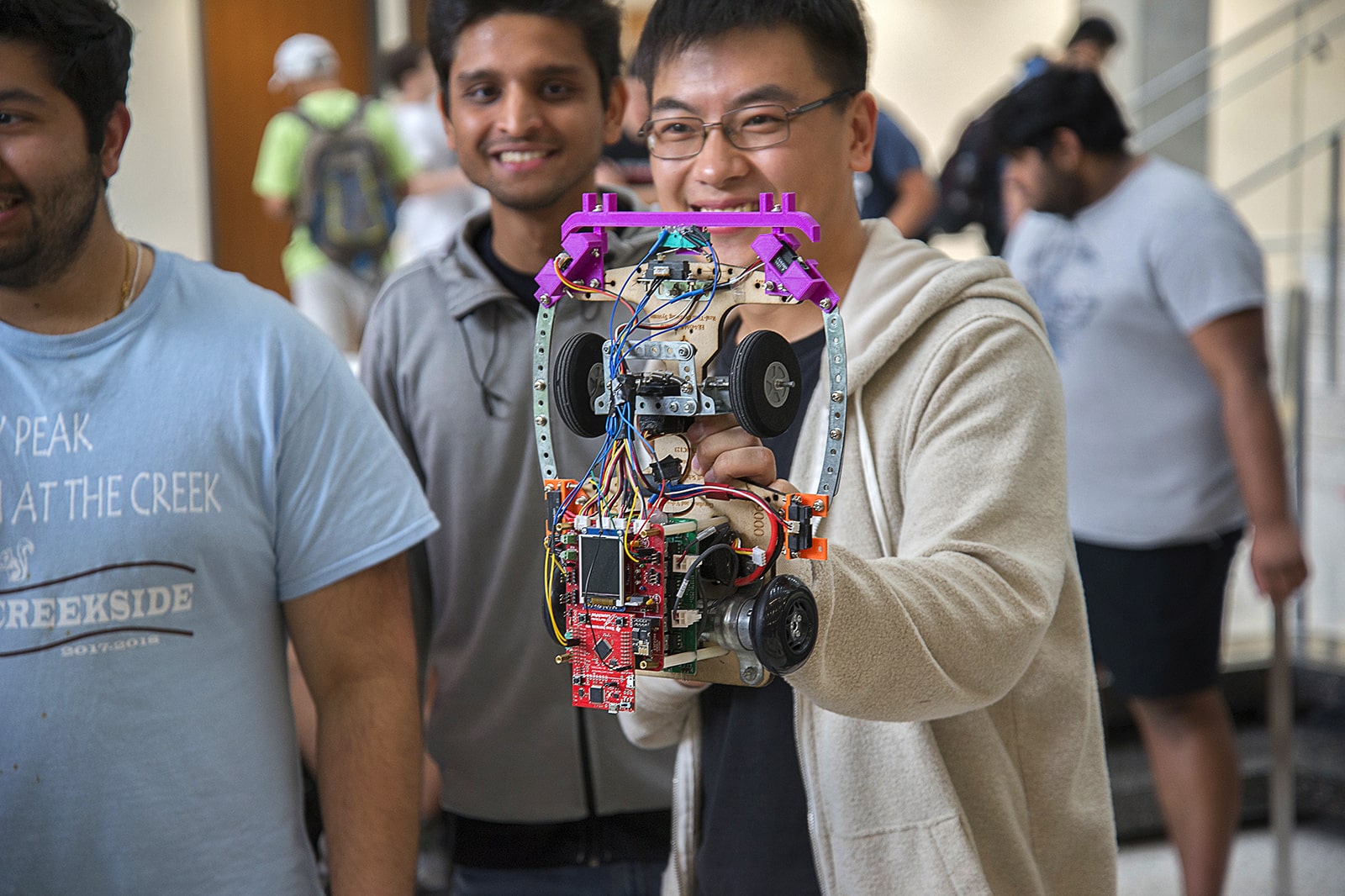Electrical and Computer Engineering

In electrical and computer engineering, students transform into professional engineers who develop solutions for building and maintaining secure data infrastructure, design intelligent utility networks, smart grids and mobile wireless networks and advance nanotechnology and biochips. Students focus on the fundamentals of both electrical and computer engineering, in addition to choosing academic tracks or areas of specialization. Texas Engineering graduates go on to work in nearly every aspect of technological advancement and innovation, including wireless networking, medical imaging, robotics and software development.
Programs offered:
What do electrical and computer engineers do?
Electrical and computer engineers have been responsible for some of the most significant engineering achievements, including the automobile, radio and television, computers, spacecraft and the Internet. They develop components for the most essential electronics and electrical systems in our lives, such as smartphones and tablets, roller coasters, medical tests, digital cameras and communications systems, in addition working on robotics, computer networks, wireless communications, biomedical devices and more at the forefront of technological innovation.
